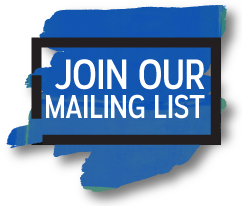
-
MANAGEMENT/EXECUTIVE DEVELOPMENT PROGRAM
Details
- A Modular ApproachIn most companies, line-leaders and operational employees work on a shift basis while heads of departments and managers execute responsibility only during their normal working hours. Hence, line-leaders are significant “front-line” managers and they should effectively lead, command and manage their respective team members. The move towards the new millennium demands line-leaders and supervisors who are more professional and competent in their jobs. It is designed to equip line leaders with the right leadership skills that enable them to perform their daily tasks of working with people effectively and efficiently at their workplace.
- Topics Covered
How Do Positive Attitudes Assist Productivity in an Organisation?
What is your self-image?
Are you contributing towards productivity?
Can do or cannot/will not do
Your role and responsibilities
Not bringing their hearts to work
Self Management
Your position as a professional in the organization
Achieving personal excellence
Building success attitudes
The challenges of excellence
Interpersonal & Interaction Skills
How to enhance pride in the work and the organization.
Three elements of motivating the workforce that will ensure a heightened level of productivity.
The role “emotional intelligence” plays in successful leadership.
Communicating powerfully.
Promoting interactive communication.
Strengthening listening skills.
Managing time effectively.
Building Commitment
Prepares leaders to be catalysts for improvement.
Encouraging and supporting change when individuals or teams experience performance or work habit problems.
Be Assertive When Communicating
Understand the difference between assertive, aggressive and passive
Demonstrate assertiveness when communicating
Communicate persuasively and assertively
Put a “stake in the ground”
Motivating Ourselves and Others Whom We Lead
Understand what motivates people and hierarchy of human needs
Building a motivational work environment
Increase staff morale and enthusiasm
Influence People in Achieving Results
Lead meetings effectively that arouse participation
Learn the principles to build willing cooperation
Handling disagreement tactfully
Effective Delegation and Empowerment
Understanding the principles of effective delegation and his purpose
Steps in effective delegation
Empowering people for effective results
Problem Solving Analysis and Decision Making
Systematic and simple approach to problem solving and decision making process
Practice and apply practical and proven problem solving techniques
Managing and Handling Conflict and Mistakes
How to handle mistakes effectively
Understand principles of a positive control system
Develop an effective approach to manage conflicts
Develop an environment that drives our fear and builds trust
Developing Action Plans
Individual / group presentation of action plans
Commitment statements













 Training Areas
Training Areas 